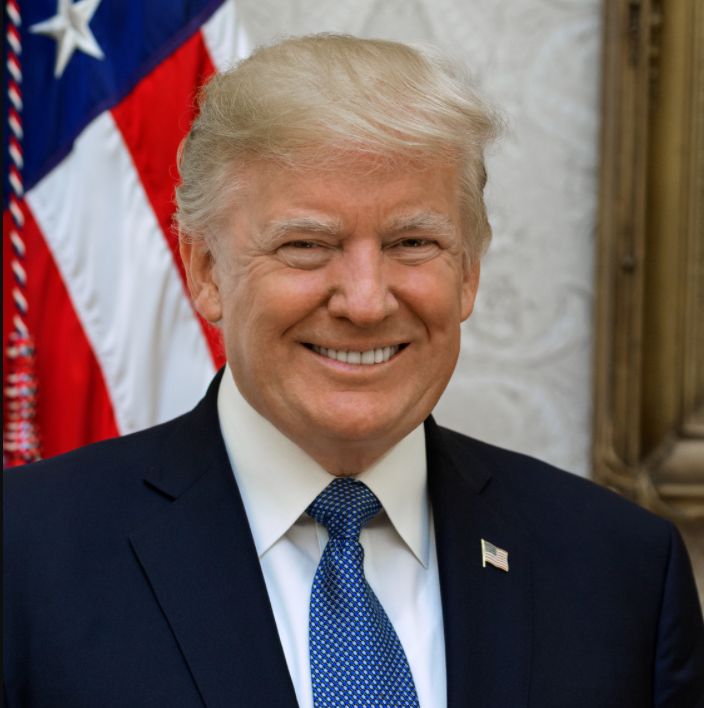Do you think Donald Trump knows that pardoning himself means he accepts a certain level of guilt for his actions?
Probably, but the outgoing American president likely doesn’t care, either.
It’s a little late for The Donald to be worrying about his image, or legacy or whatever one calls what Trump has inflicted upon planet Earth in general, and the United States in particular, during the last four years.
Whether an American president can or should pardon himself for federal crimes committed during his time in office is the first question, but one without an answer.
The American Constitution doesn’t really say he can, but doesn’t really say he can’t, either.
And no president has ever tried, so the Supreme Court has never ruled on the matter.
We already have Trump’s answer. It’s that he has “the absolute right to pardon myself.”
The New York Times describes a pardon as "an executive power that acts as a check and balance on the federal criminal justice system, enabling a president to bestow mercy upon offenders."
The president can "grant reprieves and pardons for offenses against the United States, except in cases of impeachment," the Constitution says. Sentences can be reduced or eliminated after conviction, called a commutation, or nullified of all legal consequences for an offence, which is a pardon.
And presidential pardons are anything but rare. Barack Obama issued more than 1,900 pardons during his eight years as president, for example.
Whether Trump actually needs a pardon is another matter. He has not yet been charged with any federal crimes.
He has, of course, been impeached by the House of Representatives nearly a year ago, but not convicted by the Senate in January 2020 — which would have removed him from office.
Trump was impeached for abuse of power or using the powers of the U.S. presidency for personal gain. It’s not specifically listed as an impeachable offence in the American Constitution, but thought to be covered in "treason, bribery, or other high crimes and misdemeanours" — for which a president can be removed for office.
Trump abused his power during a July 25, 2019 phone call to Ukrainian President Volodymyr Zelensky. The U.S. president asked for a favour — investigate Democratic presidential candidate Joe Biden and his son, Hunter, for corruption, while withholding nearly $400 million in American military aid, which was directed by Congress, needed to counter Russian aggression.
The Donald was also impeached for obstructing Congress, a charge levelled because Trump stonewalled the House impeachment inquiry by refusing to provide documents to congressional investigators and instructing top advisors and government officials to ignore and refuse to testify.
But since the Republican-controlled Senate decided these charges were not sufficiently serious to remove their boss from the Oval Office, Trump stayed on and even laughed off his impeachment.
Trump isn’t laughing now, of course. Democrat Joe Biden is president-elect and Trump’s claims of having the election stolen from him have fallen on mostly deaf ears, from voters and in the courts.
The question becomes what he will do between now and Inauguration Day — Jan. 20, 2021 — when Biden takes over.
Trump has already started pardoning his people, and his family could be next.
But will he pardon himself? It would probably be the most significant pardon in American history, although maybe not the most famous.
That would be President Gerald Ford’s full and unconditional pardon to Richard Nixon for any crimes he might have committed against the United States as its president.
Many Americans believe Nixon resigned from office in 1974 to avoid certain impeachment and removal from office. Late that July, the House Judiciary Committee passed three articles of impeachment against Nixon — for obstruction of justice, abuse of power, and defiance of subpoenas. All related, in whole or in part, to the Watergate scandal.
When it became apparent he would be impeached in the House and convicted by the Senate, Nixon resigned the presidency Aug. 9, 1974.
He was pardoned a month later.
Ford always said he pardoned Nixon to essentially end America’s Watergate nightmare. Nixon on trial would have just extended the agony of having a president who was essentially a criminal.
But Ford contended there was another reason. A 1915 Supreme Court decision (Burdick vs. United States) ruled that a pardon carried an "imputation of guilt" and "acceptance of a confession of it." The implication was that Nixon acknowledged his Watergate guilt by accepting Ford’s pardon, in return for not being prosecuted for those crimes.
So would the same logic apply to Donald Trump? Assuming he granted himself a full and unconditional pardon, what would it be for?
Abuse of power and obstructing Congress? He’s already been impeached for that.
His lack of leadership and mishandling of the COVID-19 pandemic, and the tens of thousands of Americans who died or were sickened by his incompetence and outright neglect of the greatest health emergency in a century?
How would that be proven in a court of law, and what would be the point? American voters have already rendered their decision on Trump, showing him the door and electing Biden.
But it might give some satisfaction that the American president, who has never admitted he was wrong and never admitted anything he’s done was anything but perfect, would admit his guilt, albeit unintentionally, by pardoning himself.
And it would be just a little justice, rare for Donald Trump during these past four years.
Bob Bruton is a staff reporter at BarrieToday who has a particular interest in arguably the worst president of the United States (Donald Trump), which is saying something — given George W. Bush (9/11) and Richard Nixon (Watergate).



